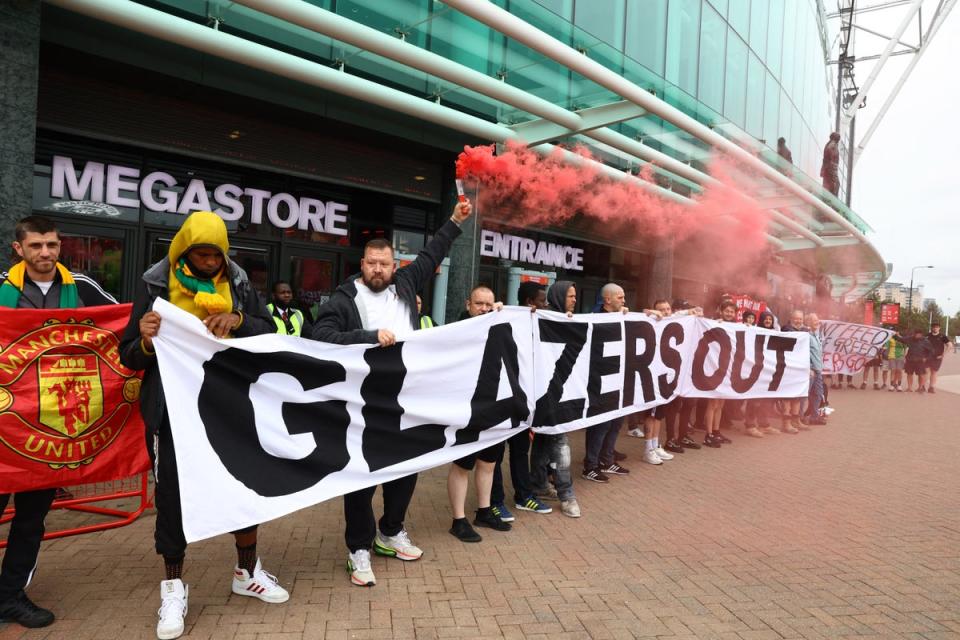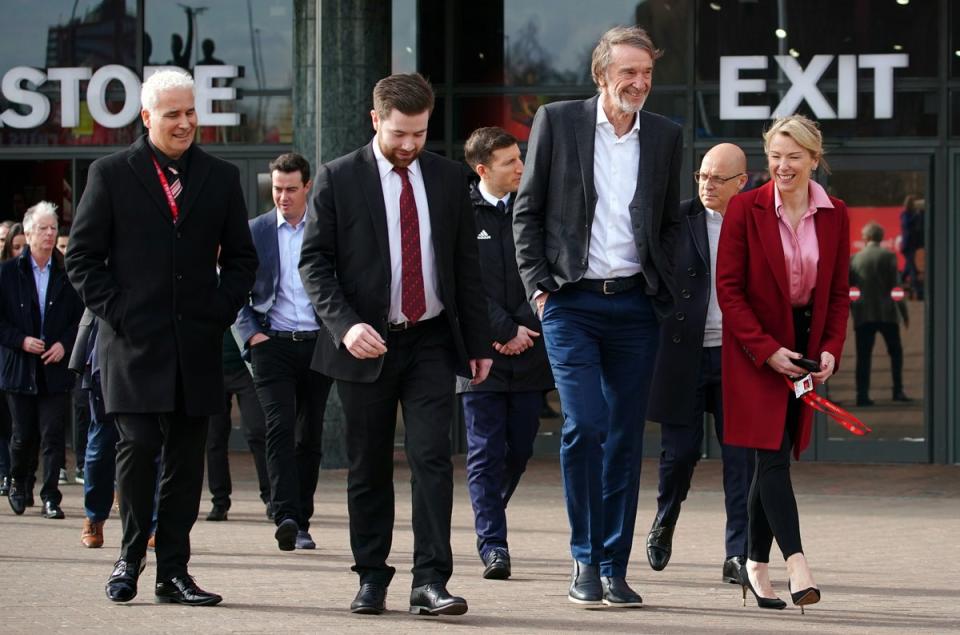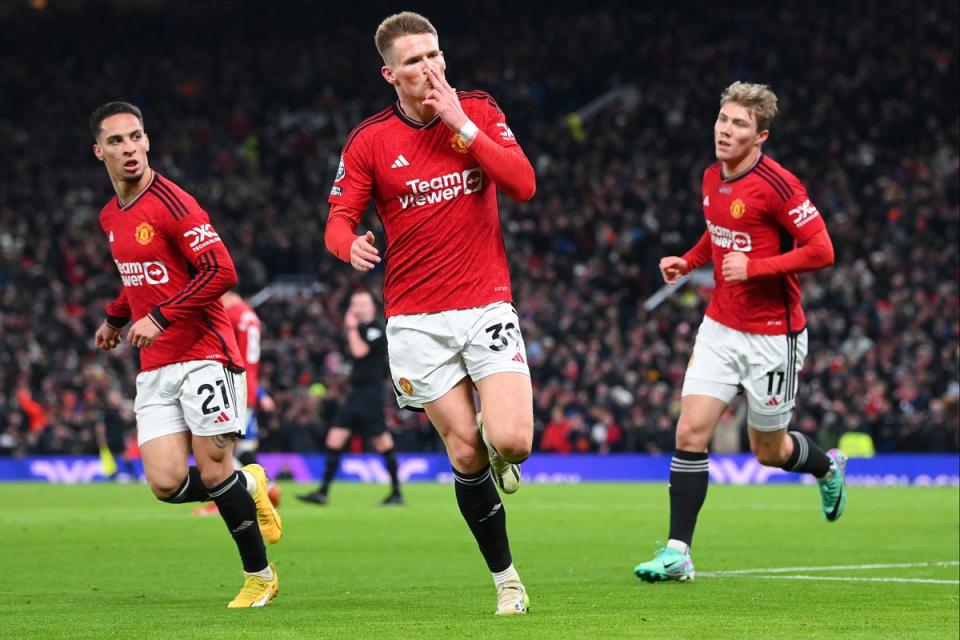Everything you still don’t know about the Manchester United takeover
For all the noise around the Manchester United sale process over the past few months, there were a few key words that actually stood out as crucial to those involved. That was when the Ineos delegation met the club hierarchy and Sir Jim Ratcliffe was “blunt” about the many football failings. The billionaire, who took the same “helicopter view” of the sport as he does all his businesses, pointed to specific areas where United were drastically underperforming against similar clubs.
This contrasted with the Qatari delegation, who never actually included Sheikh Jassim. They went into no such detail.
It has all played into one of the biggest developments out of the major news that the Glazer ownership of United has finally been diluted. A minority stake has been sold to Ineos.
Ratcliffe’s football hierarchy – to be led by Jean-Claude Blanc – will not have to run decisions past the US-based siblings, in the way that has arguably hampered United for so long. A budget will be agreed at board level and that will then be completely under the purview of the Ineos sporting structure, who will have total control and authority over the sporting side of the club. That might seem unusual but it will in some way be a reversion to the structure under Sir Alex Ferguson and David Gill. The authority is there to make major decisions.
The importance of that in itself shouldn’t be underestimated. It is arguably a best-case scenario for supporters in the context of the Glazers staying, and something most would have eagerly accepted before at least November 2022.
That was when the United owners confirmed they were exploring options about selling stakes of the club, something that had been an open secret for months beforehand. The entry of Sheikh Jassim into the process then sparked the excitement of those fans and pundits who weren’t so concerned with questions about state links and sportswashing, while dangling the hope of a full sale.

The reality that can be fully revealed now is that the Glazers were never seriously considering that prospect. Sheikh Jassim was a non-runner, who only served to inflame discussion and create a lot of noise.
That initially made it more difficult for Ratcliffe, and probably raised the price considerably, but soon began to serve him. The petrochemicals billionaire realised as early as May that the purchase of a majority stake just wasn’t happening. There is a belief now that the Glazers perhaps only announced they were open to the possibility out of fiduciary duty. The number that would have made them change their mind would have had to have been “astronomical”.
That is because they firmly believe they have the strongest sporting brand in the world. They knew it would be ludicrous to give that up at a time when there is almost an American gold rush as regards US-based investors trying to purchase stakes in the game. The club they owned was the most valued of all. The Glazers have calculated that value will still rise considerably over the medium-to-long term, both due to the guarantee of technological changes and the more uncertain possibilities offered by an evolving calendar, such as with an expanded Club World Cup. Everyone is meanwhile bullish that Premier League rights will continue to rise.
The Glazers nevertheless knew the stadium and club infrastructure needed investment, which led them here. That is now arguably the best-case scenario for the siblings, too. If it goes wrong on the sporting side, they can no longer be blamed. If it goes right, however, the club is so much more lucrative. Liverpool’s recent financial leap under Jurgen Klopp's management has repeatedly been mentioned.
For whatever reason, though, Sheikh Jassim’s delegation never made the calculation that Ratcliffe did. The Qatari bid obstinately insisted on a full sale without ever getting anywhere close to the figures required, and the only apparent strategy to get around this seemed to be to creating a lot of noise on social media. It was that noise and level of distraction, however, that allowed Ineos to get on with negotiations about a minority stake. Highest-level meetings have been taking place frequently since then.

Figures involved describe it as the most complicated takeover process they’ve ever experienced. That was due to the distinctiveness of a minority owner negotiating sporting control when the owners are generally very hands-on, and do everything at their own pace. The latter was another reason this entire story seemed to go so slowly. From that, there was surprise within Ineos that former chief executive Richard Arnold departed. That wasn’t pushed by Ratcliffe, who had no idea until it was confirmed.
Either way, it has now led to this landmark moment in the modern history of Manchester United. Ratcliffe has finally claimed a stake in the club. That confirmation marks a genuine new era for United, where there will be a difference.
It should also bring some questions, not least with how a part of one of the great football institutions is now part of a multi-club project, given Ineos owns Nice. That actually isn’t something that should just be dismissed out of hand.
United are grand enough to stand on their own. That is now just a touch more complicated.
A counterpoint to that, however, is that this unique purchase also goes against the recent trend of football. It is exceedingly rare for anyone other than a state, a major consortium or a private equity firm to acquire a stake in a major club. For all the fair discussion of “greenwashing”, a billionaire like Ratcliffe does see this as about legacy. He also wants to enjoy some of his money with one of the great football names, that he does have an emotional affinity to.
There is still a lot to figure out, mind, particularly on two major issues.

One is what that football structure of the club will actually look like. While there have been private discussions with potential appointments, those with knowledge of the situation say it is premature to expect major change so quickly. Ineos wants to watch and see how United work from a full audit of the club, before figuring out how to make it work, by hiring the right people.
It is why anyone giddy for January may have to be cautious. Ineos has to go through all the relevant Premier League tests, for one. They would also say, for their part, that any well-run club – which, admittedly, is the reason we’re here – would already have January plans identified long before December.
What is certain is that Jean-Claude Blanc will oversee the process. Some even believe he will eventually be chief executive. Sir Dave Brailsford will have considerable input within that, but the plan is for bright football people to lead the club. Michael Edwards’s name has been mentioned a lot, even more than Paul Mitchell or Dougie Freedman, but there are reservations over whether he actually wants to get back into football.
The second step is what will happen above that. The main reason the negotiations took so long was because the Glazers and Ineos were working out what a potential “path to majority” might look like. That can’t even be completely clarified until a point when the club is delisted, which is why these legal terms have required even greater nuance. That side of the talks was described as “intense”, with a lot of deliberating over unknowns.
For now, though, there is a new certainty around United. It’s not just about the Glazers any more. The hope, for everyone involved at the club, is that it can mean United can be much more than they’ve been.

 Yahoo Sport
Yahoo Sport 



































































